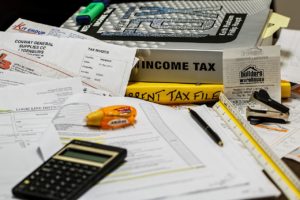Blog
Posted July 18, 2019
What is a payment on account, and do I need to pay it?
If you are self-employed or you receive an income from dividends, property or investments you will need to complete a self-assessment tax return.
A self-assessment tax return is prepared annually and must be submitted by 31 January following the end of the tax year (which ends of 5 April). Unlike an employee who pays tax monthly through PAYE, a self-employed person will pay their first tax bill on 31 January following the end of a tax year.
Paying tax for your first year of trading
Example
If Sarah starts trading as a sole trader on 1 May 2018 and chooses a year end of 31 March, her first trading period will be 11 months long and will end on 31 March 2019. The deadline for submitting the tax return and paying the tax due will be 31 January 2020, 20 months after she started trading.
Payment on Account
As there is a long delay between earning the money and paying the tax (in the above example 20 months), HMRC operates a system called ‘Payment on Account.’
If your tax bill is less than £1,000 or more than 80% of your income is taxed at source (e.g. employment income taxed under PAYE), payments on account will not apply to you.
If the two situations outlined above do not apply to you, you will need to make payments on account.
Example
Continuing with the example above, if Sarah’s 2018/19 tax liability is calculated as £4,000 it will be due for payment on 31 January 2020. As it is higher than £1,000 and she has no tax deducted at source, payments on account will apply to her.
HMRC will calculate Sarah’s 2019/20 payment on account using the amount of her 2018/19 tax liability. She needs to pay 50% of her 2018/19 liability on 31 January 2020 towards her 19/20 liability, and the other 50% on 31 July 2020, so when she reaches 31 January 2021 (the date that her 2019/20 tax would be due), she has already paid her estimated liability.
A balancing payment may be due if her actual liability is more than the estimate, or she may be due a refund.
The payment on account system ensures that you pay your tax as you go along rather than paying tax in arrears. It does however mean that for many self-employed people, their first tax bill is 50% more than they may have been expecting.
Can I adjust my payment on account?
 As the size of your tax bill is based on your previous year’s tax bill you will pay roughly the same amount each year. If your circumstances change, e.g. your profits reduce, or you start employment, you can make a request to reduce your payments on account.
As the size of your tax bill is based on your previous year’s tax bill you will pay roughly the same amount each year. If your circumstances change, e.g. your profits reduce, or you start employment, you can make a request to reduce your payments on account.
Reducing payments on account should only be done if you are certain that your tax bill will lower because if you apply to reduce your payments and end up underpaying tax HMRC can apply penalties and interest on the sum as it is classed as a late payment.
We can take the pain out of self-assessment
In your first year of trade it is more important than ever to get your tax return completed as early as possible so there are no surprises in January.
We are experts in self-assessment and our qualified accountants take all the hassle out of preparing your self-assessment tax return. For further information contact us on 0113 258 2437.
SERVICES
LATEST NEWS
CATEGORIES
- Blog (159)
- Business Advice (56)
- Just For Fun (17)
- Tax Tips (45)
- Video (8)












